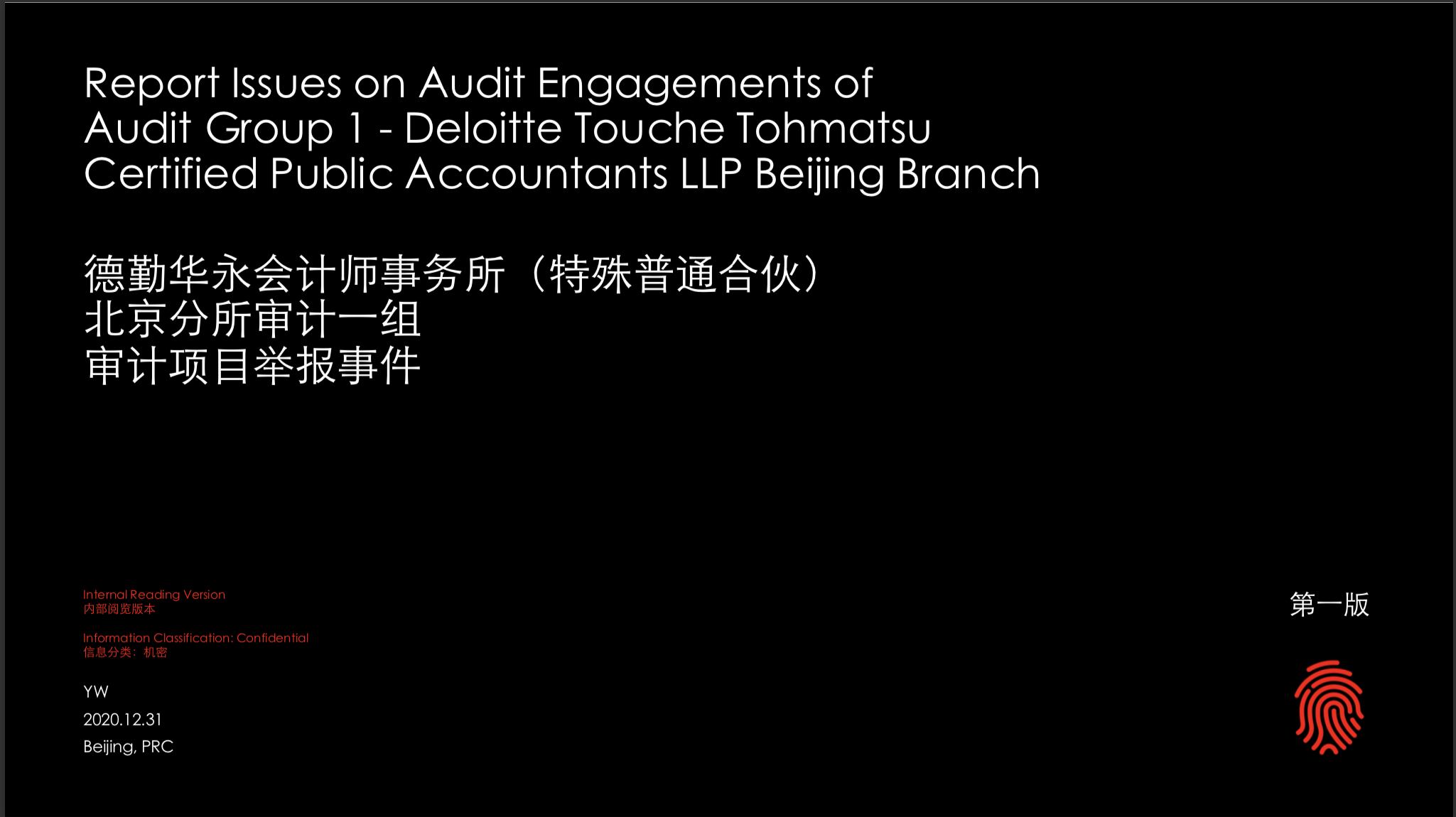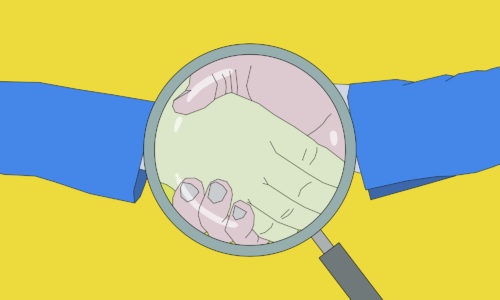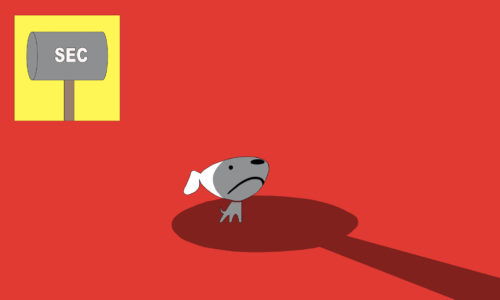Deloitte accused of operational and ethical malpractice in China auditing division
A document leaked to the internet claims that there are serious problems at the Beijing office of one of the world’s “Big Four” accounting firms. A Chinese newspaper says Deloitte is just playing by the industry’s unspoken rules.

On Wednesday, a leaked document involving Deloitte, one of the largest accounting firms in the world, began circulating on the Chinese social media. The 55-page document (in Chinese), written by a person calling themselves YW who says they were a Deloitte employee at the company’s Beijing office, outlined “serious problems of auditing professional ethics and quality” going back to 2016. YW also promises that further leaks are forthcoming.
The document was also mass emailed to Deloitte Beijing employees, according to the Beijing News (in Chinese). The China Project reviewed the document and confirmed with a Deloitte employee in Beijing who wished to remain anonymous that the document had been sent in a group email to colleagues.
The document went viral and “Deloitte” became a trending search on Chinese social media Weibo (in Chinese) and Zhihu on February 5, with many commentators expressing support for YW. The most liked comment on Zhihu (in Chinese) calls for government intervention. The Beijing News report linked above says the report reveals the “unspoken rules” (潜规则) of the audit industry.
In the document, YW writes: “I have communicated with Deloitte management and Deloitte Reputation and Risk Group (RRG) more than 30 times for 2 years since 2018, requesting Deloitte to deal with audit quality reporting issues properly.”
“However, it is a pity that up until now, all of the people involved in the reporting issues are still engaged” in other important auditing engagements “and have been promoted accordingly.” The employee seems to imply that managerial conflicts of interest may have resulted in inaction up until now.
YW says Deloitte has taken no action against the accused individuals, even though the problems were first brought to light in 2018. The individuals include two partners and multiple senior managers who are all mentioned by name.
Among the main accusations — which include 10 specific episodes, three of them by another employee who has since resigned — is the failure to abide by proper auditing protocol. Auditors took major shortcuts, the report claims, telling their clients that their jobs were thoroughly completed when they were not. The firms named in the report include Sinotrans, a logistics platform of the state-owned transportation conglomerate China Merchants Group, Boqi Environmental, a well-known waste management provider, and LG CNS China.
RYB Education — an NYSE-listed company that itself had a scandal in 2017 involving child abuse at a kindergarten — is mentioned as compensating employees with gift cards and by paying for their expenses, including those incurred by senior executives’ children overseas, irregularities to which auditors are alleged to have turned a blind eye.
Deloitte auditors are accused of dilly-dallying on the job, failing to read requisite files, skipping quality control procedures, and even falsifying data. Pictures in the report depicted stacks of papers strewn across floors of windowless rooms.
Response from Deloitte and the regulators
The China Security Regulatory Commission (CSRC), the main financial regulatory body equivalent to the S.E.C. in the U.S., issued a statement on Friday acknowledging the report’s existence. The spokesperson said (in Chinese) that the CSRC was paying attention to the case, and is currently seeking to verify and follow up with the relevant institutions.
Deloitte responded (in Chinese) to the leaked document on its website, saying that the company had started an investigation and “no evidence was found that affected the adequacy of our audit work.” The announcement also said Deloitte “reserves the right to take legal action for the spread of false information.”
YW paints a different picture, arguing that it had tried to report the malpractice through the appropriate channels, but that the firm had reacted by “suspending their career development.” It also documented a culture of “bullying” and “intimidation” tactics.
Ethical codes?
Deloitte is one of the “Big Four” largest accounting firms in the world, along with PricewaterhouseCoopers, KPMG, and Ernst & Young. In 2020, Deloitte was listed among the largest privately owned companies in the United States along with Koch Industries and Cargill, the agribusiness giant.
If genuine, the document offers a rare window into a lucrative, but shadowy arm of the global financial system. Auditors mediate between private institutions and public regulators, making their own work less transparent and less scrutinized relative to the private clients they serve.
Instead, auditing firms rely mostly on internal ethical codes and self-enforcement mechanisms to ensure quality. This makes it difficult to see when they are misbehaving. In recent decades, as global financial firms have flourished, business practices and financial instruments have become more complex. Tax auditing, which has grown along with the industry, has developed into its own kind of byzantine trade, with its unique culture, practices, and vocabulary.
In a separate letter (in Chinese) to the Deloitte employees, which was also leaked, YW expressed some hesitation about releasing the document, but ultimately decided to go ahead.
“I thought long and hard about whether I should release this report to the public. If it is made public, it will affect the interests of some people in the company, and even the interests of some clients. But if it is not made public, then where is the professional ethics, and who will take account of the interests of the general public? Isn’t the point of our audit work for the wider public interest?”
“What is the meaning of our auditing work otherwise?”




